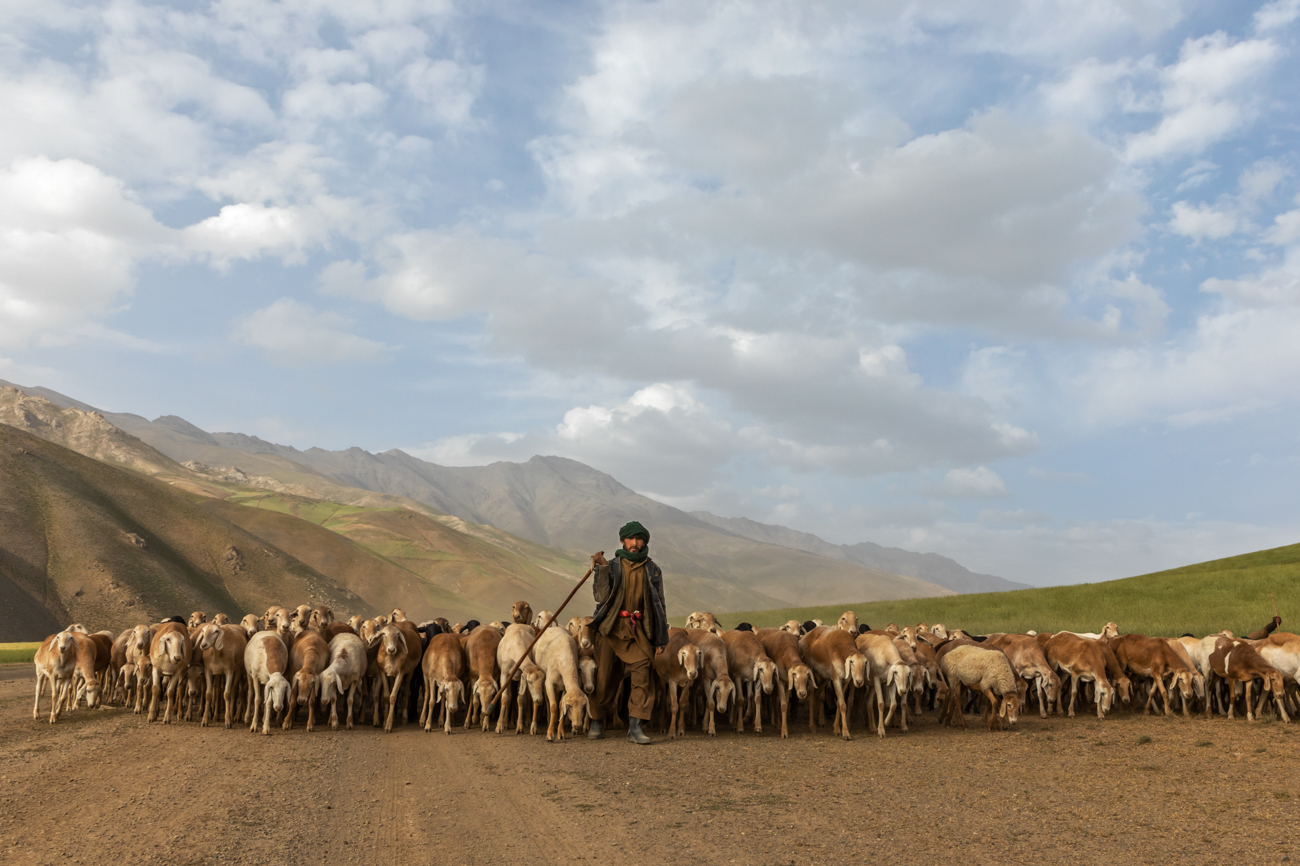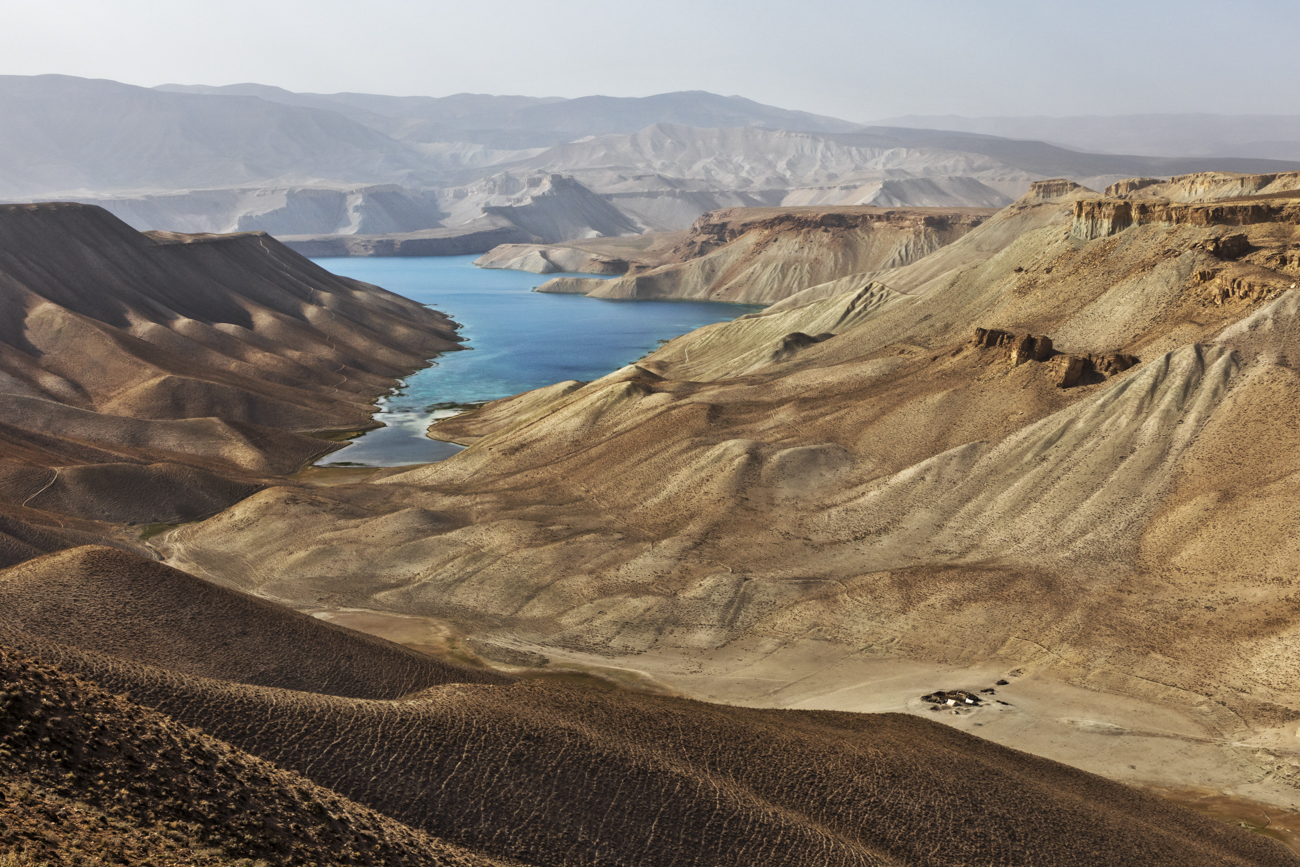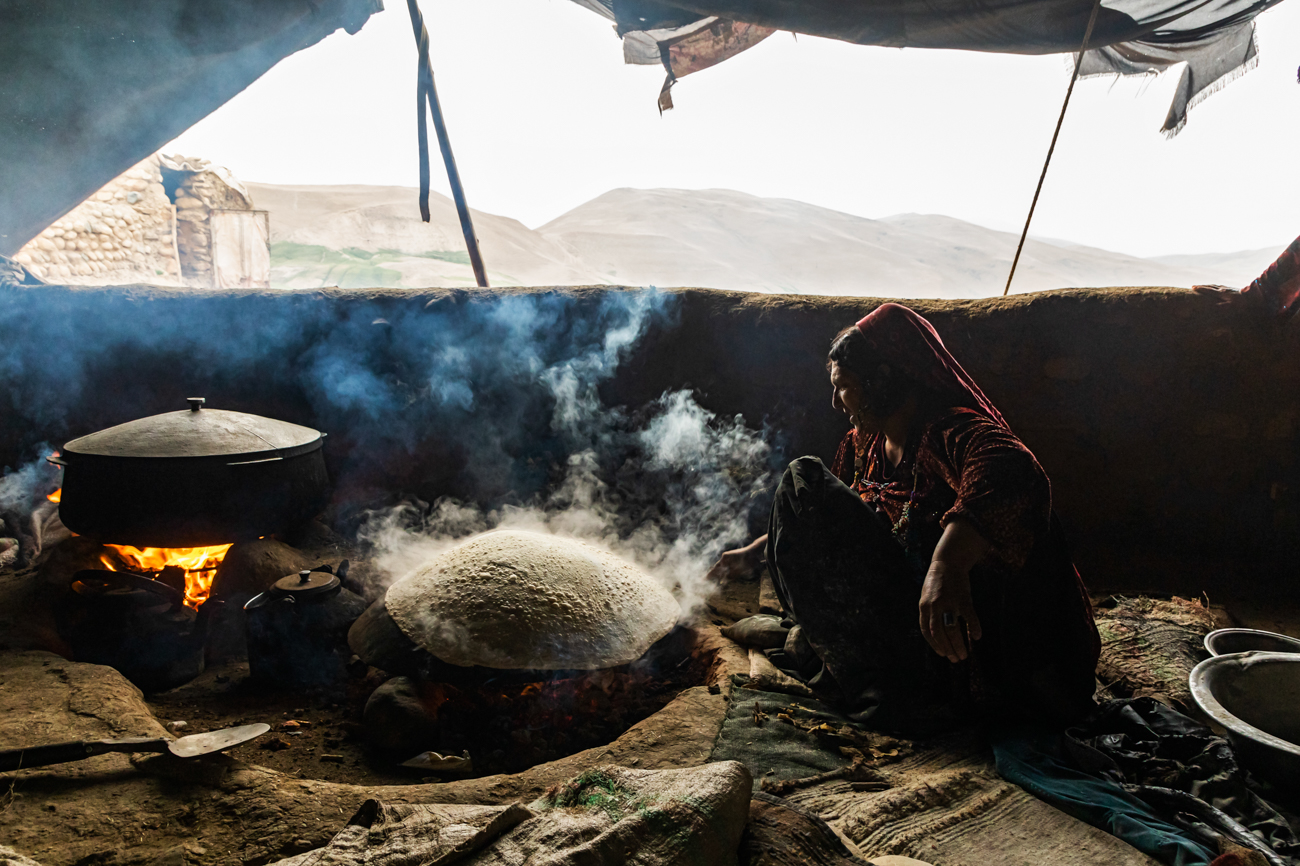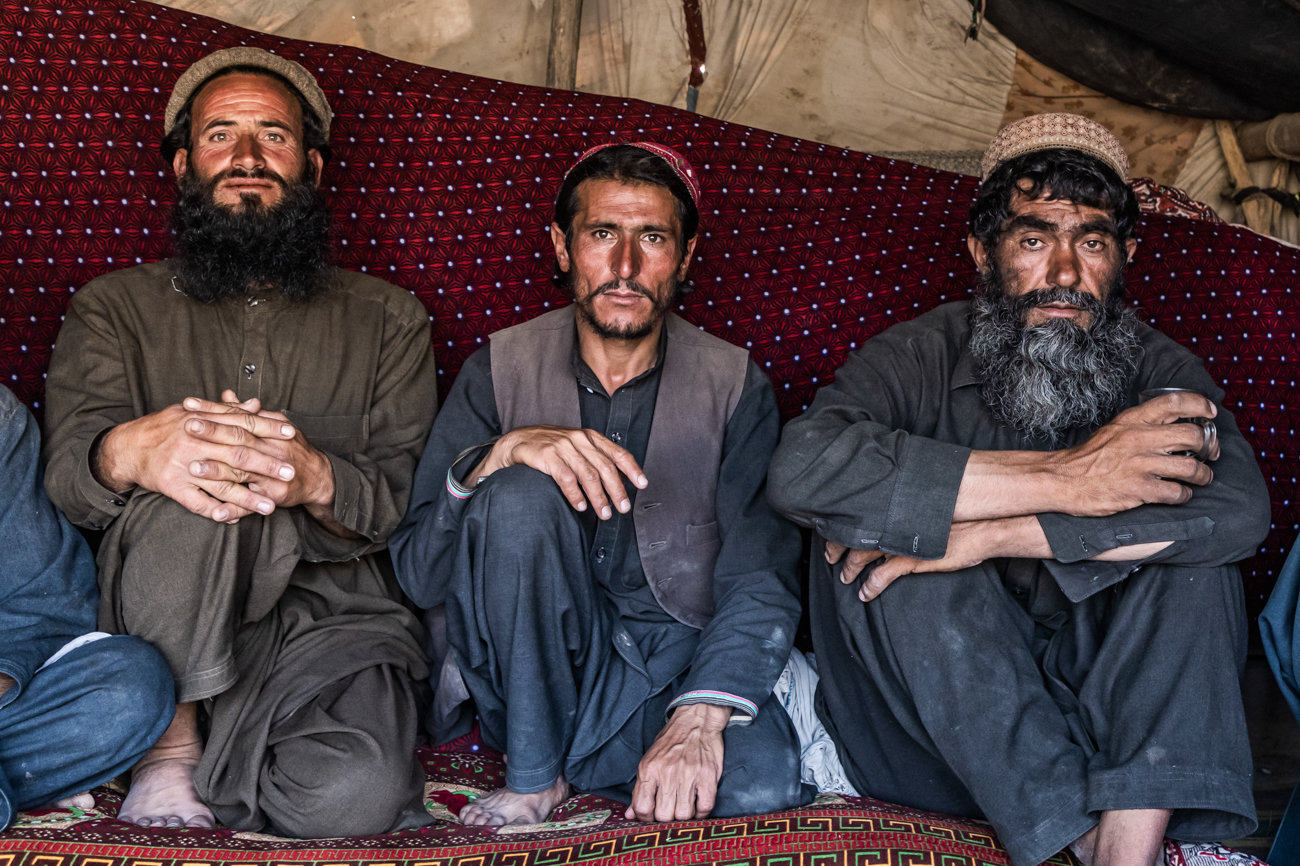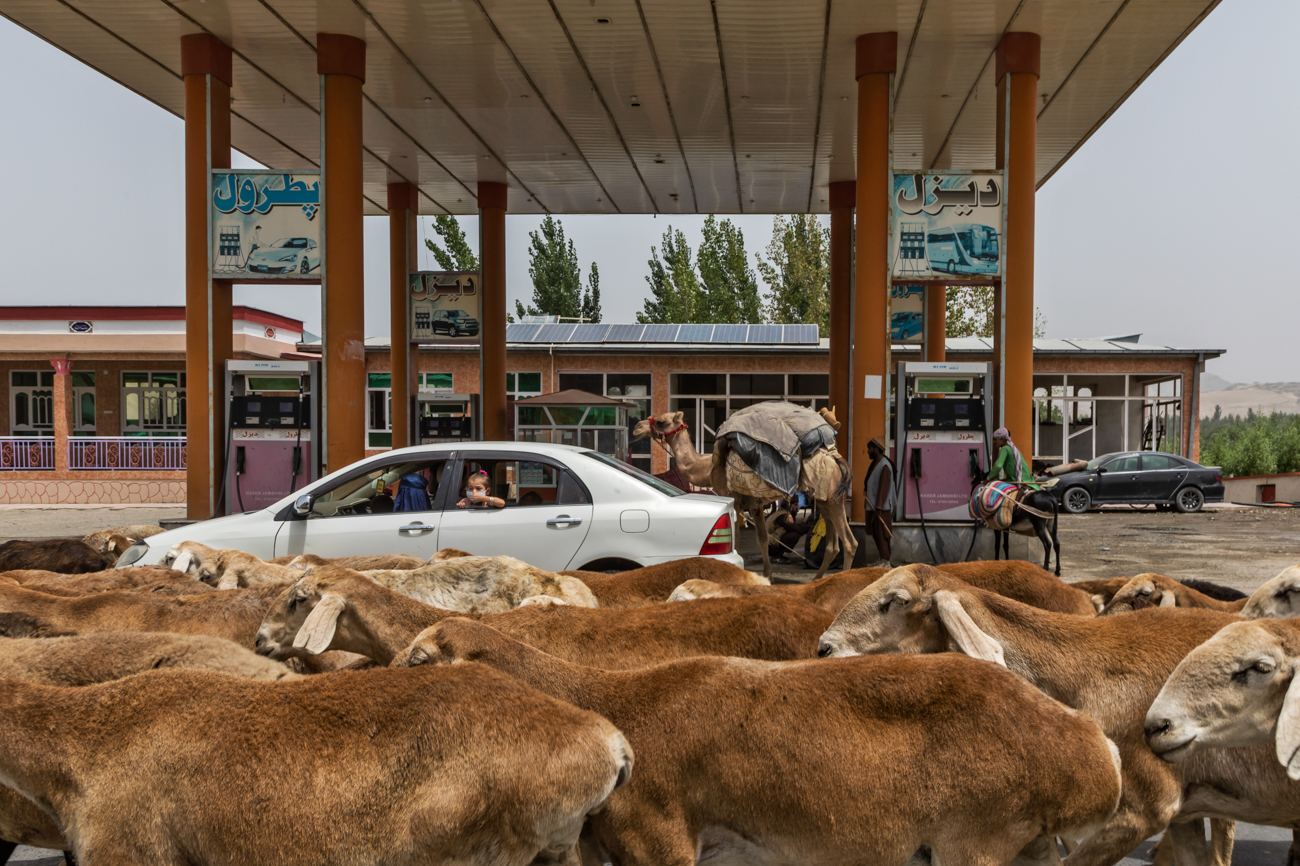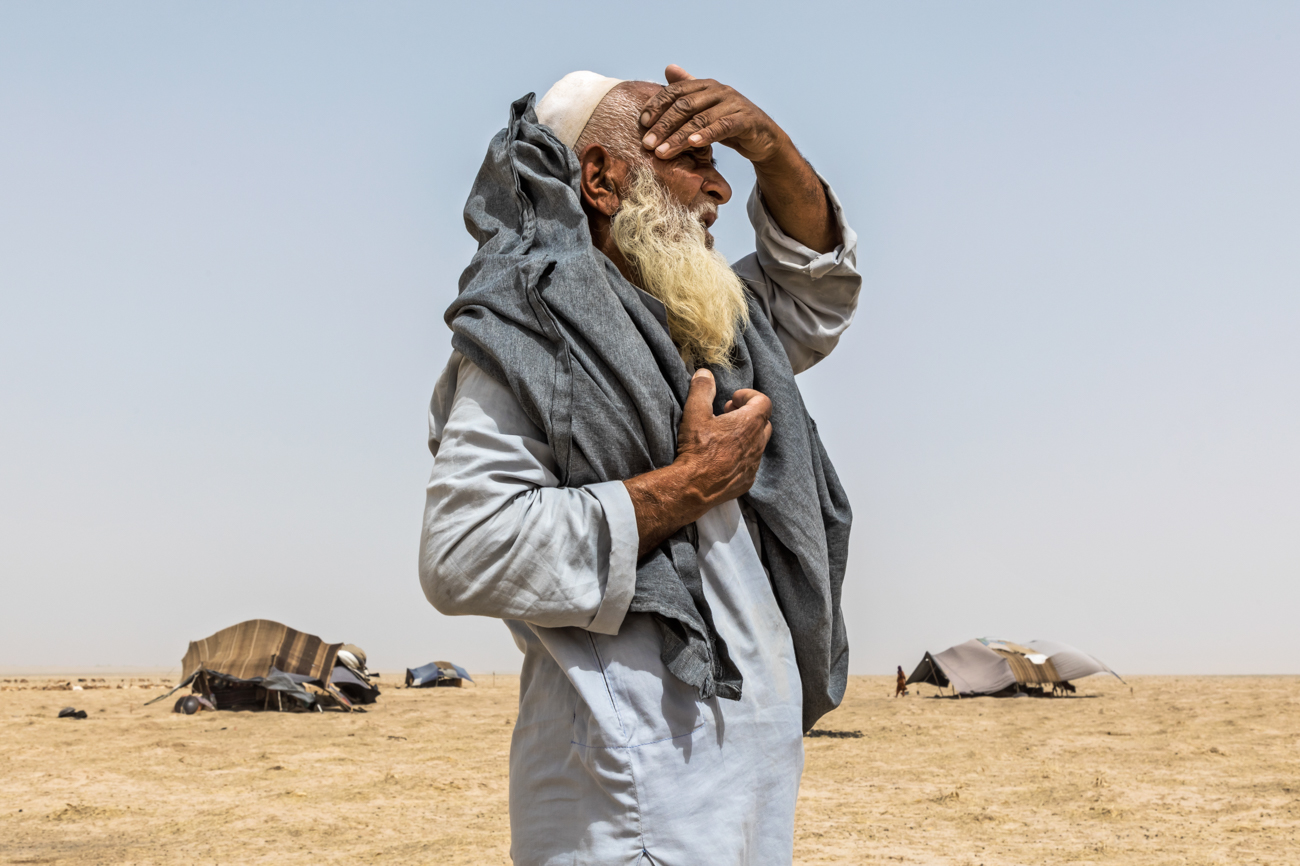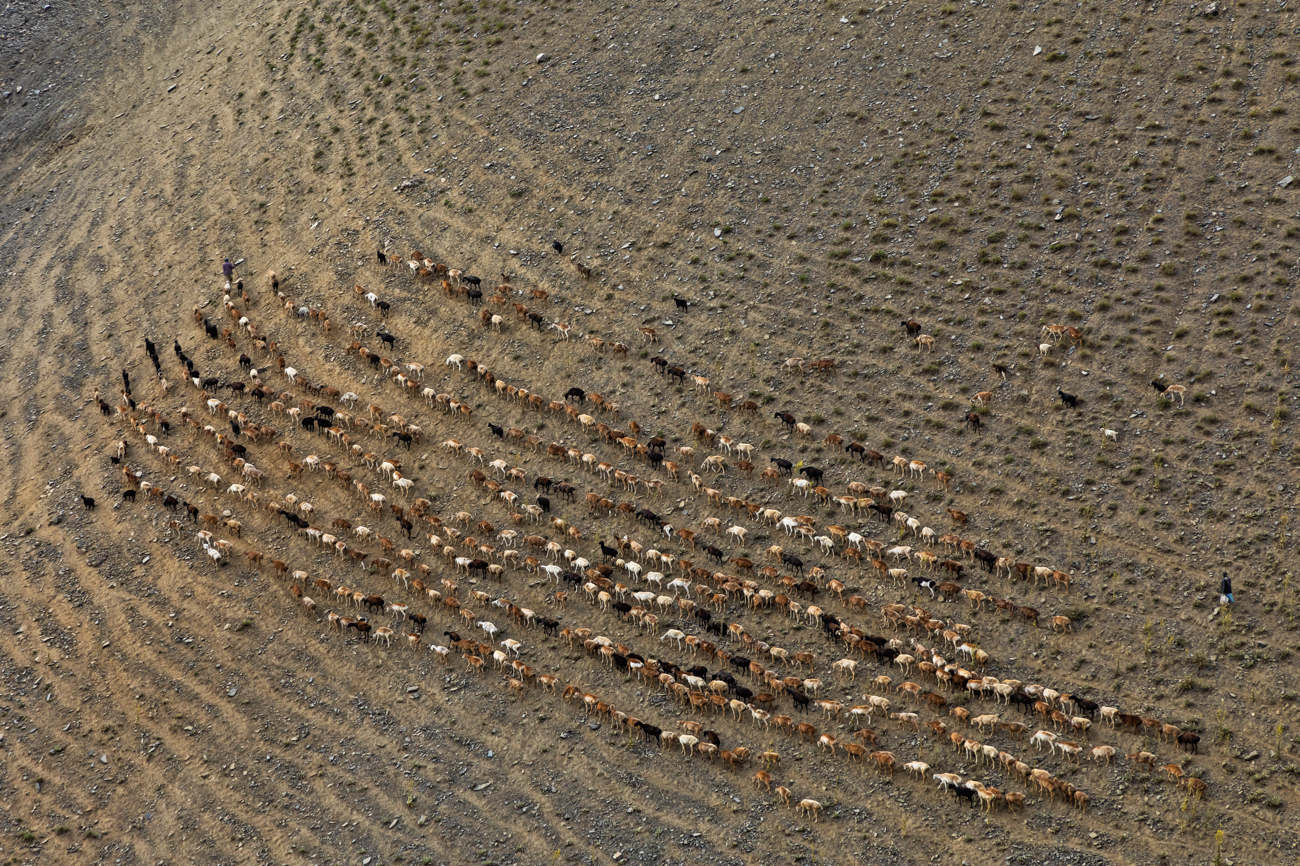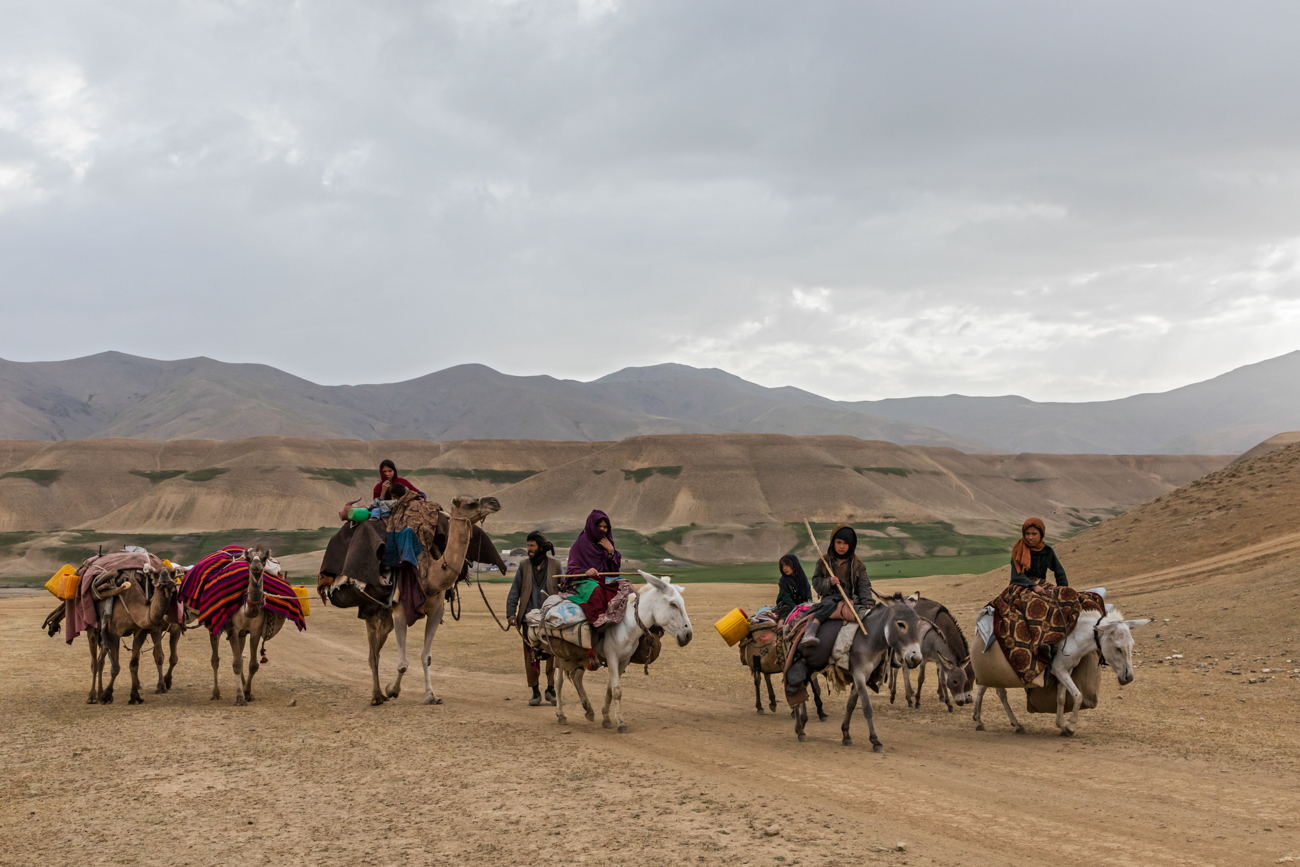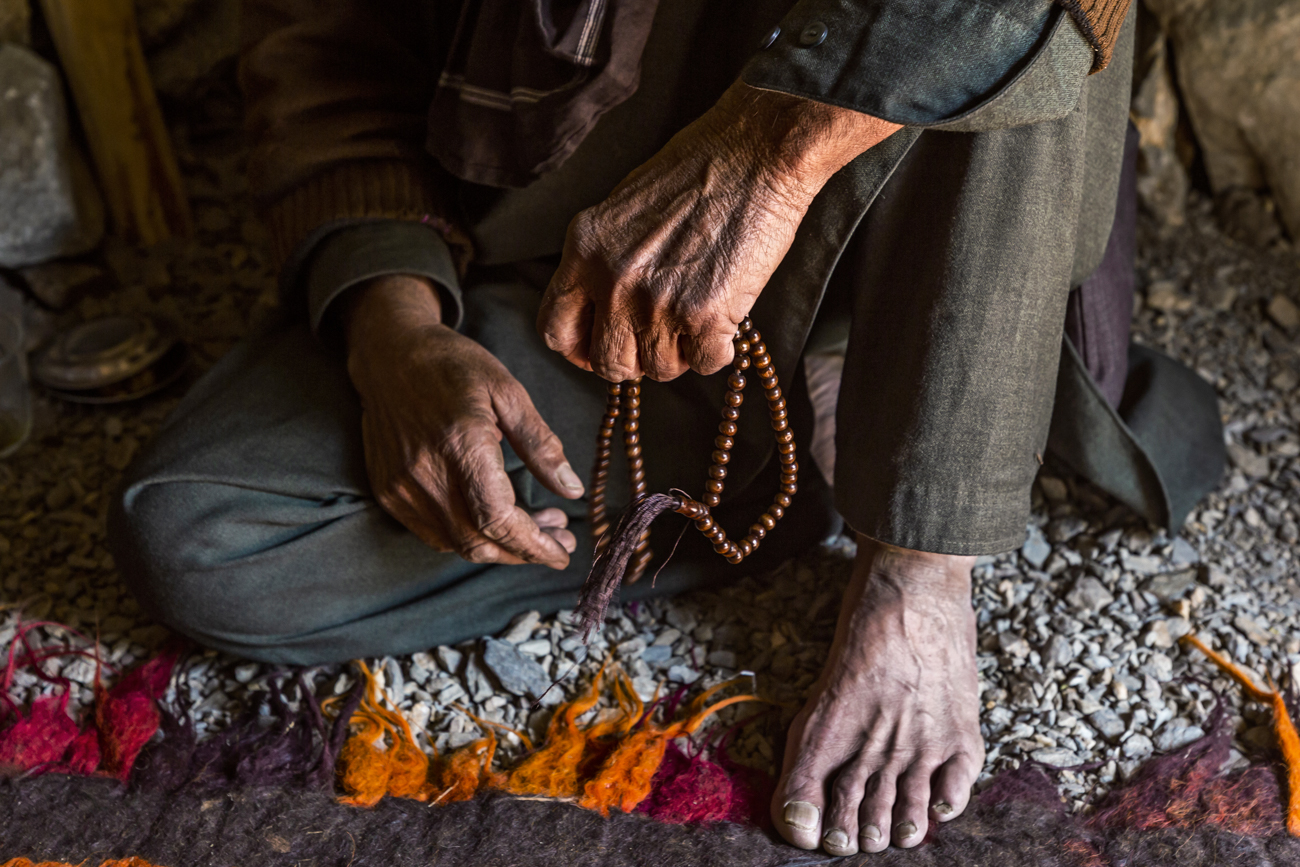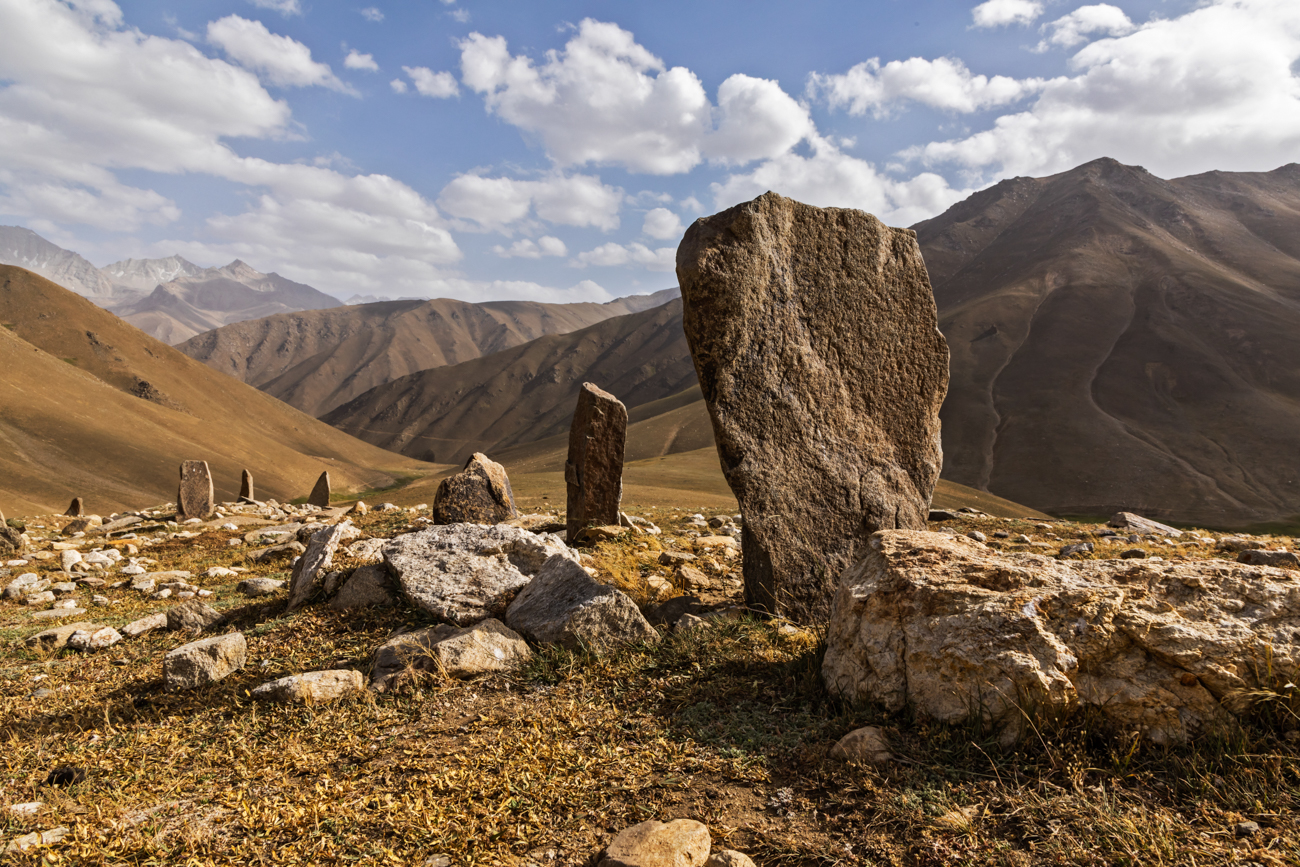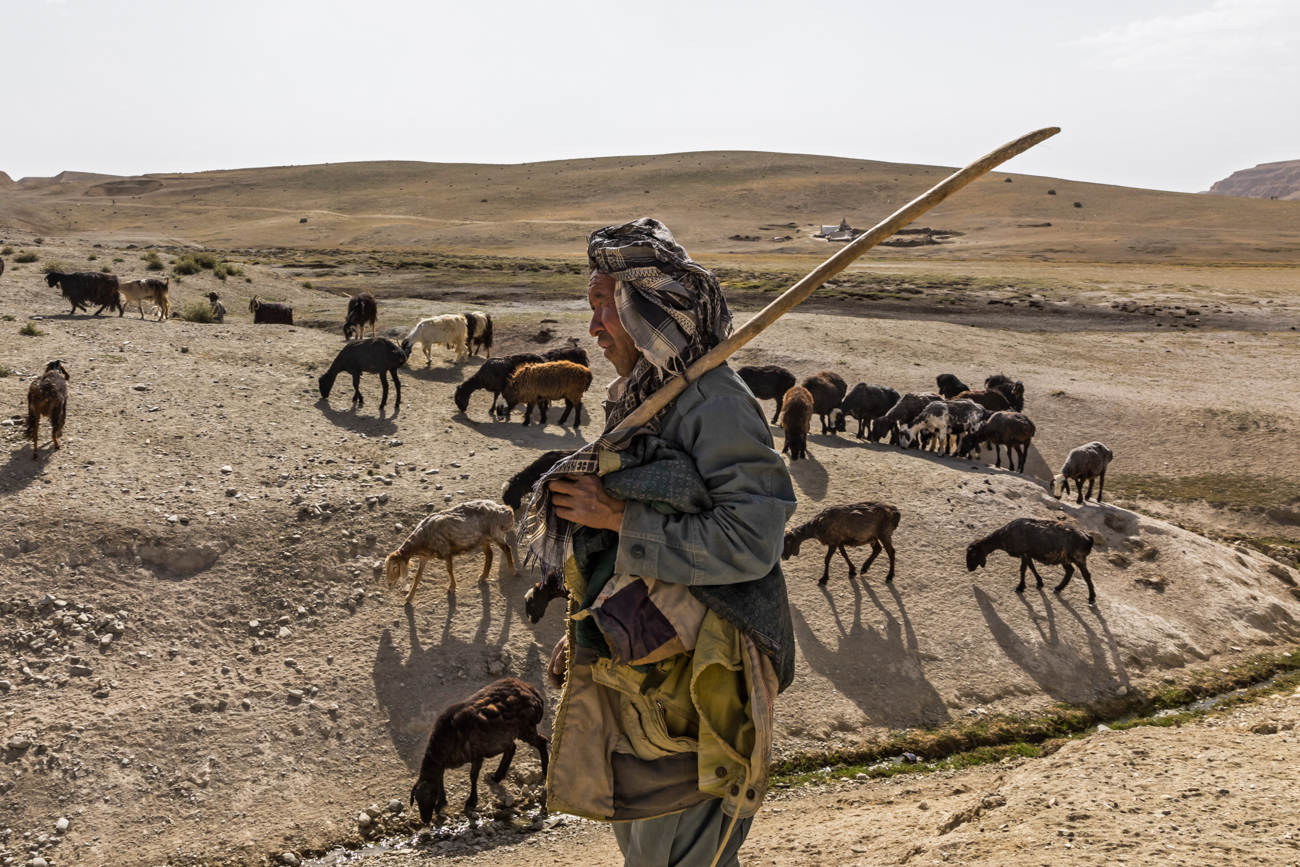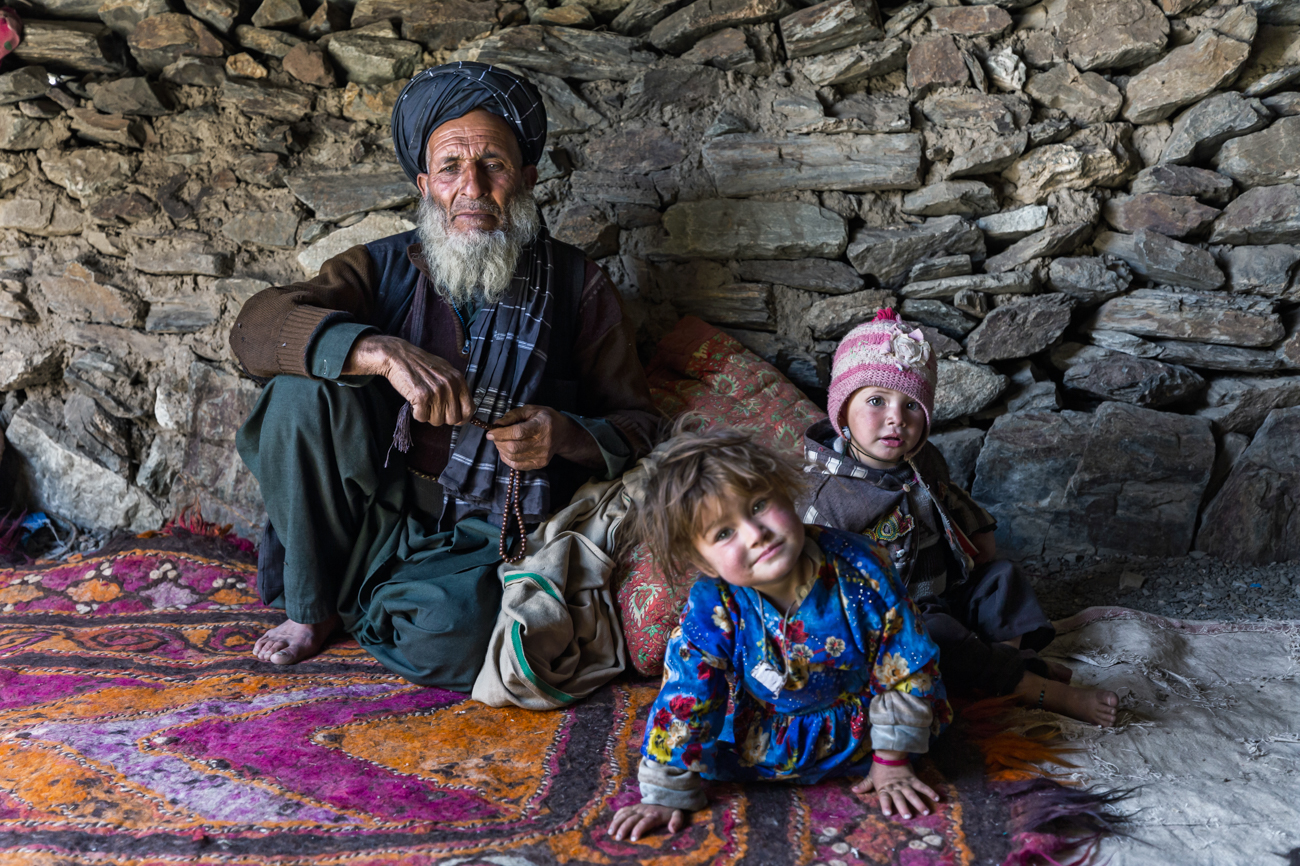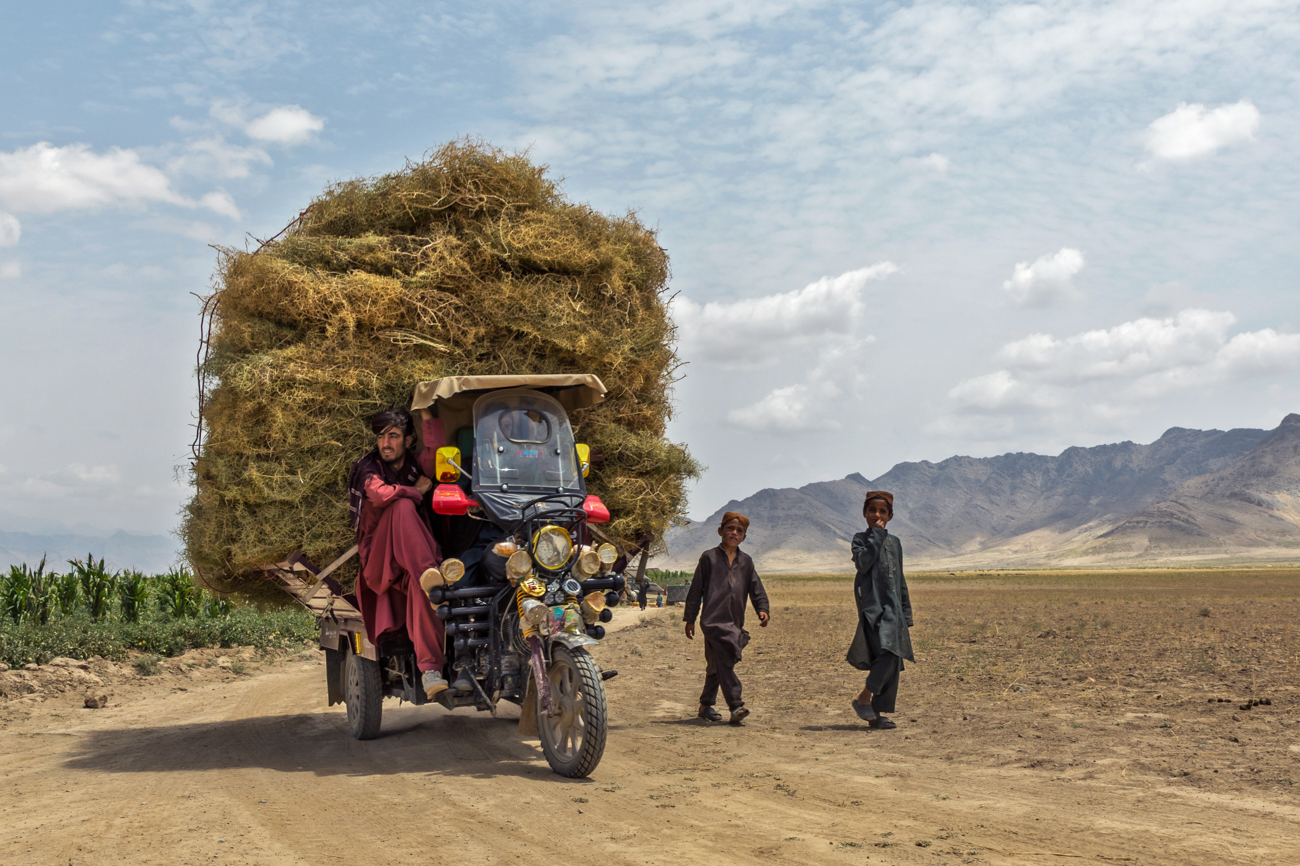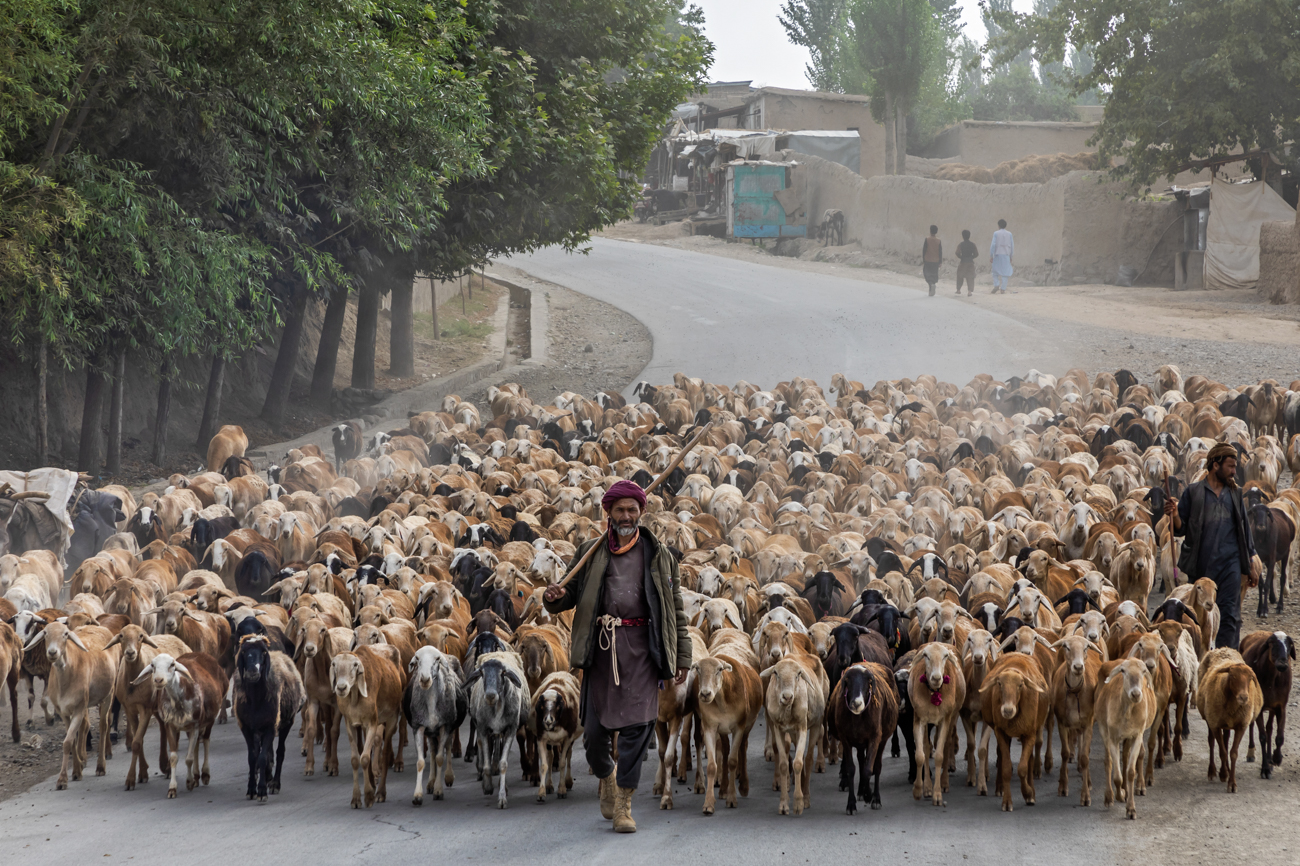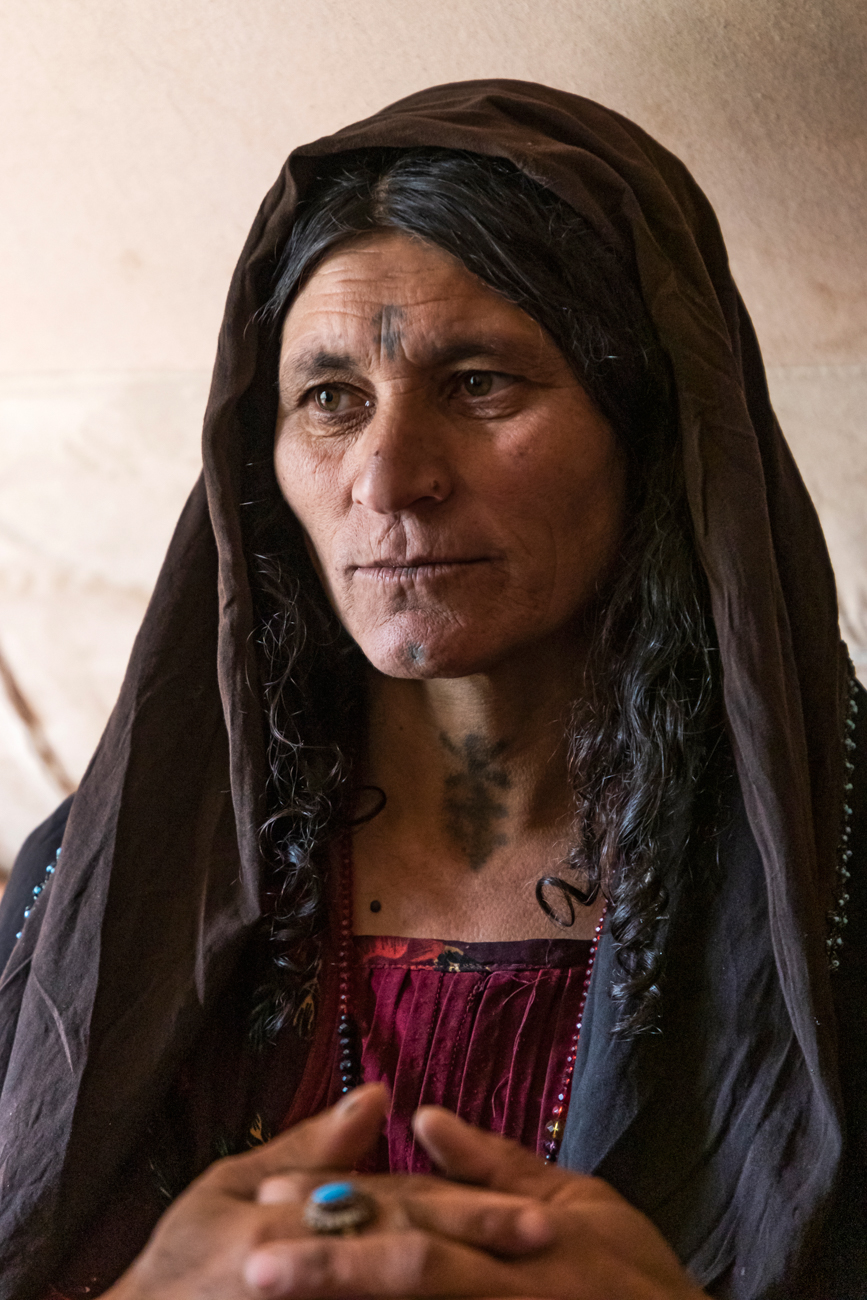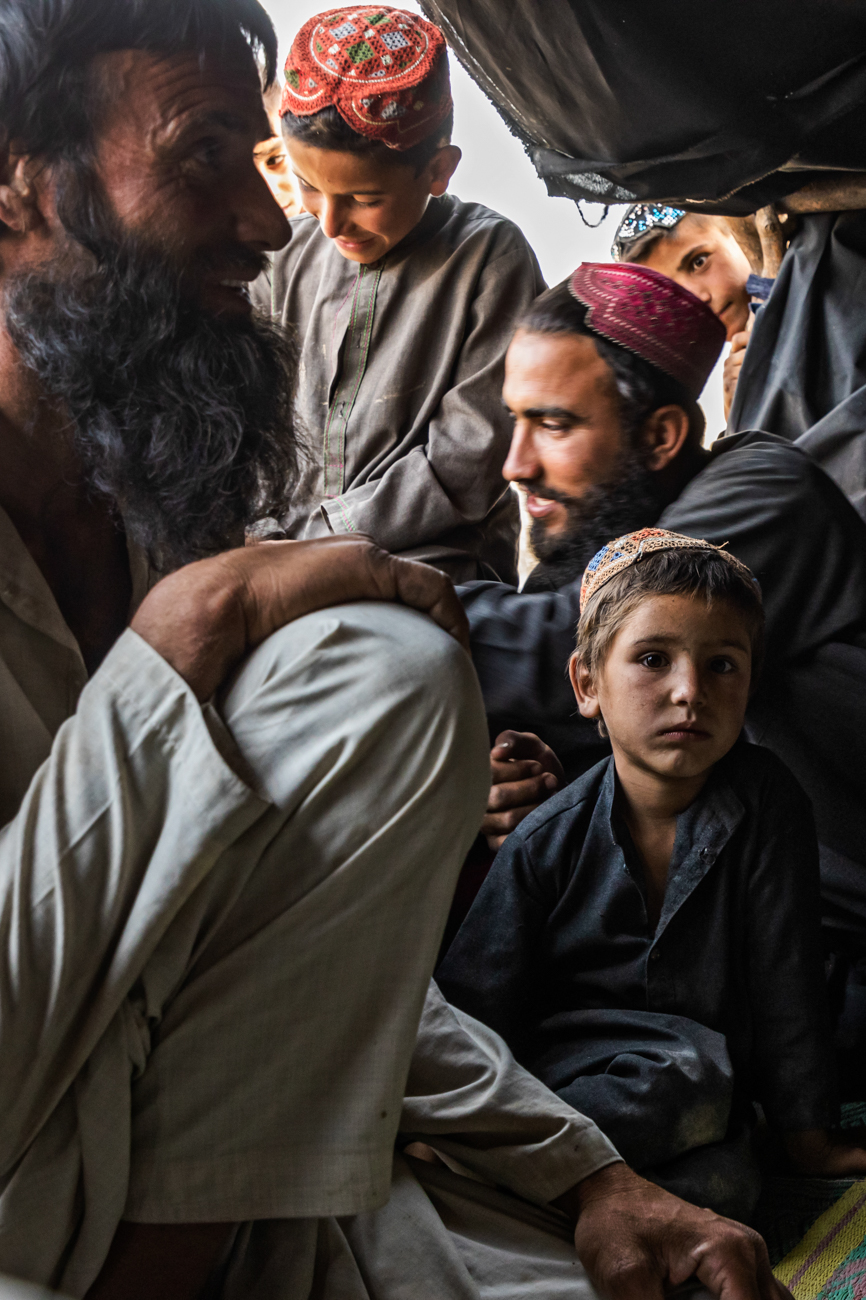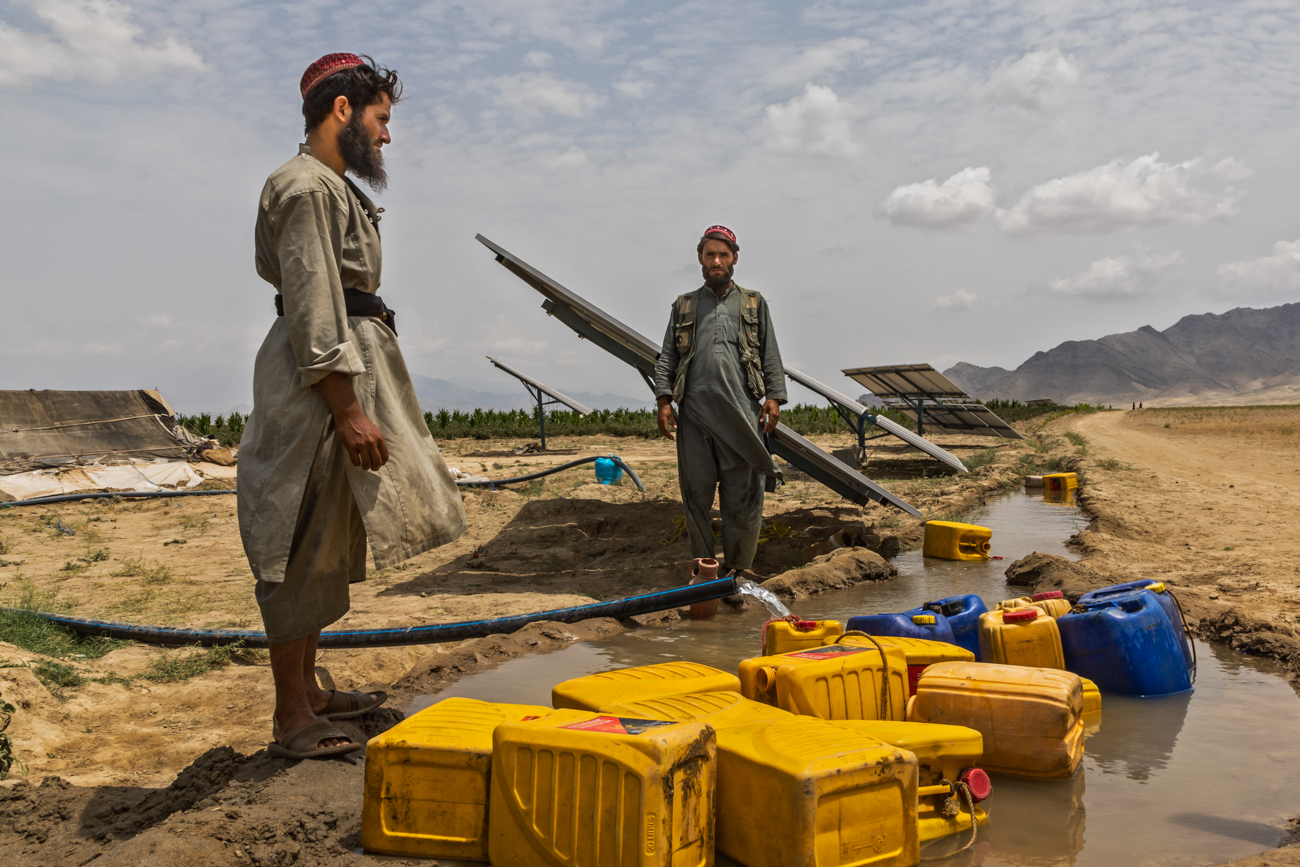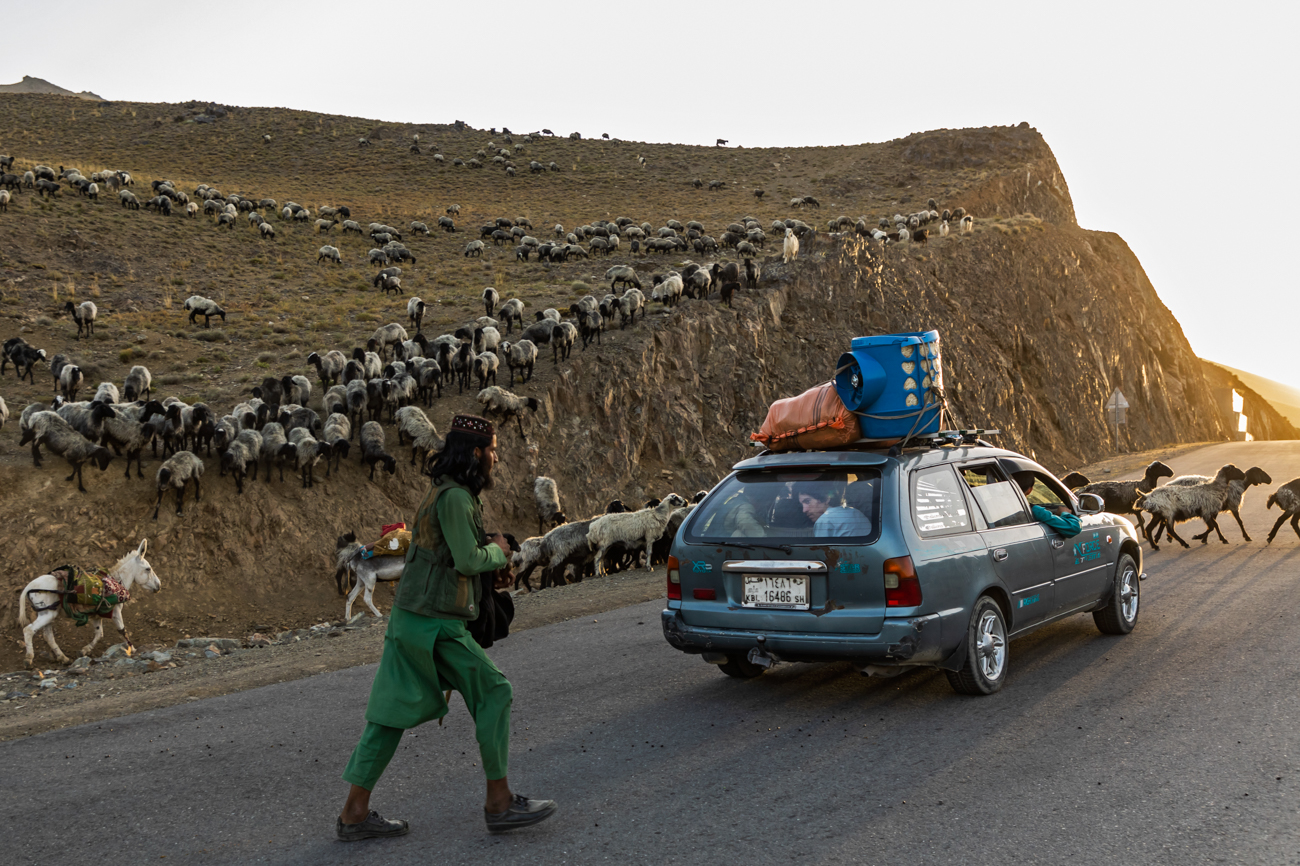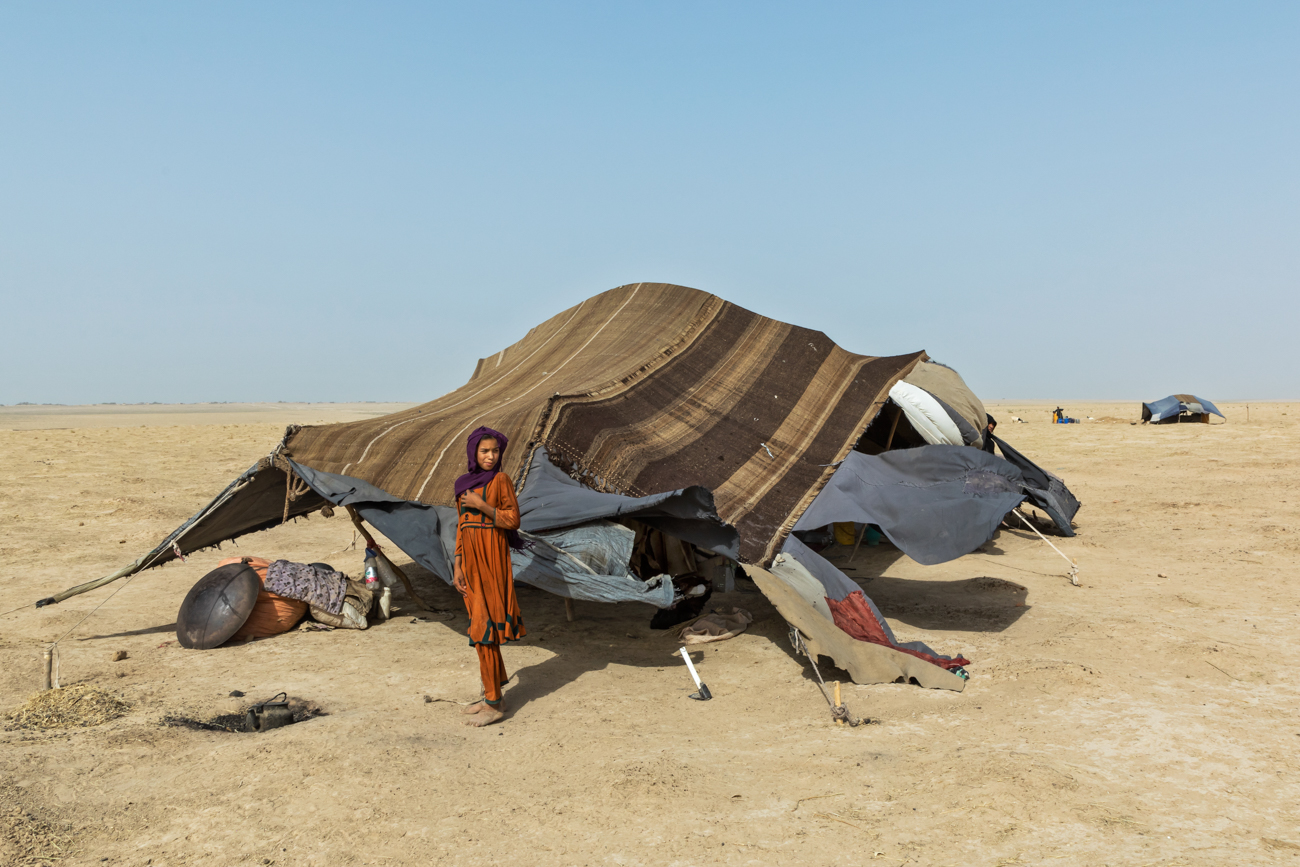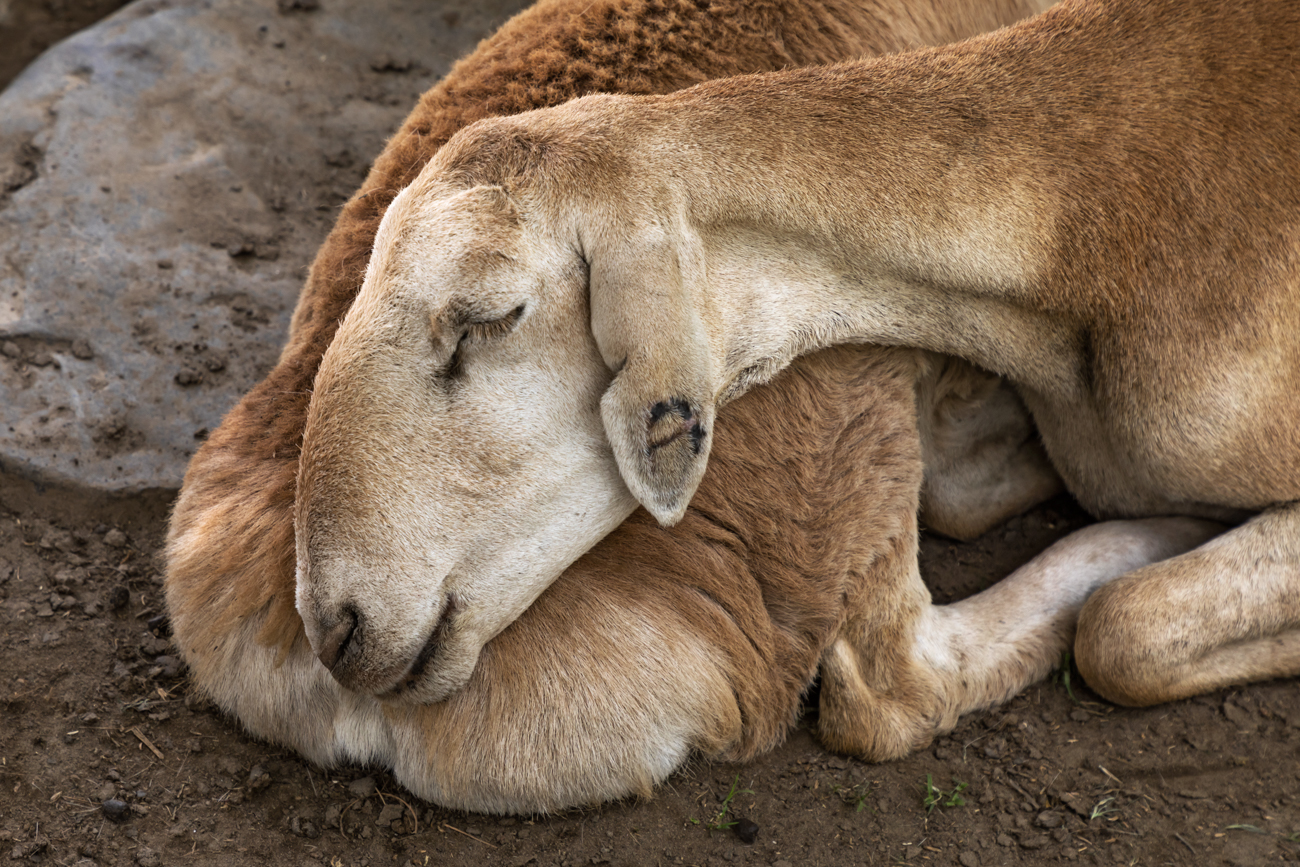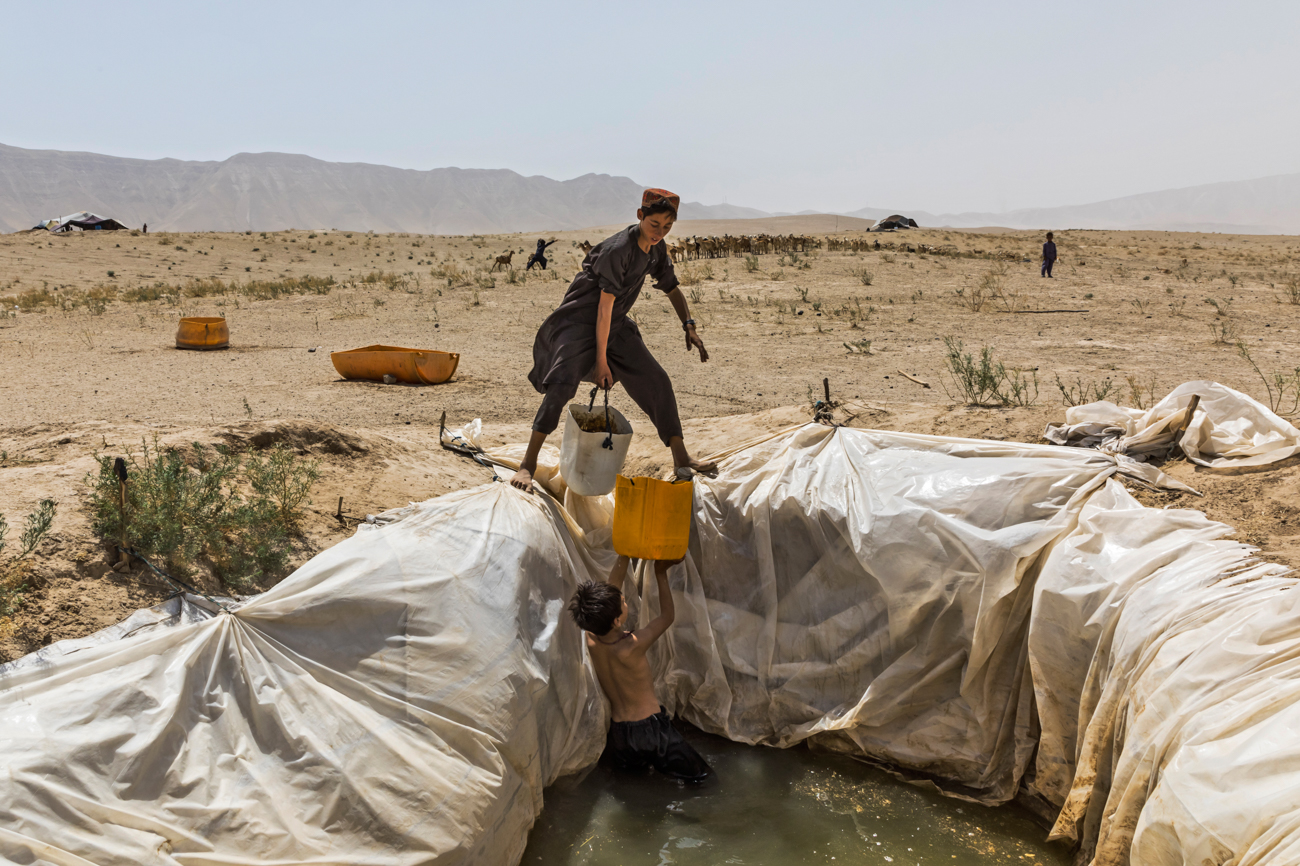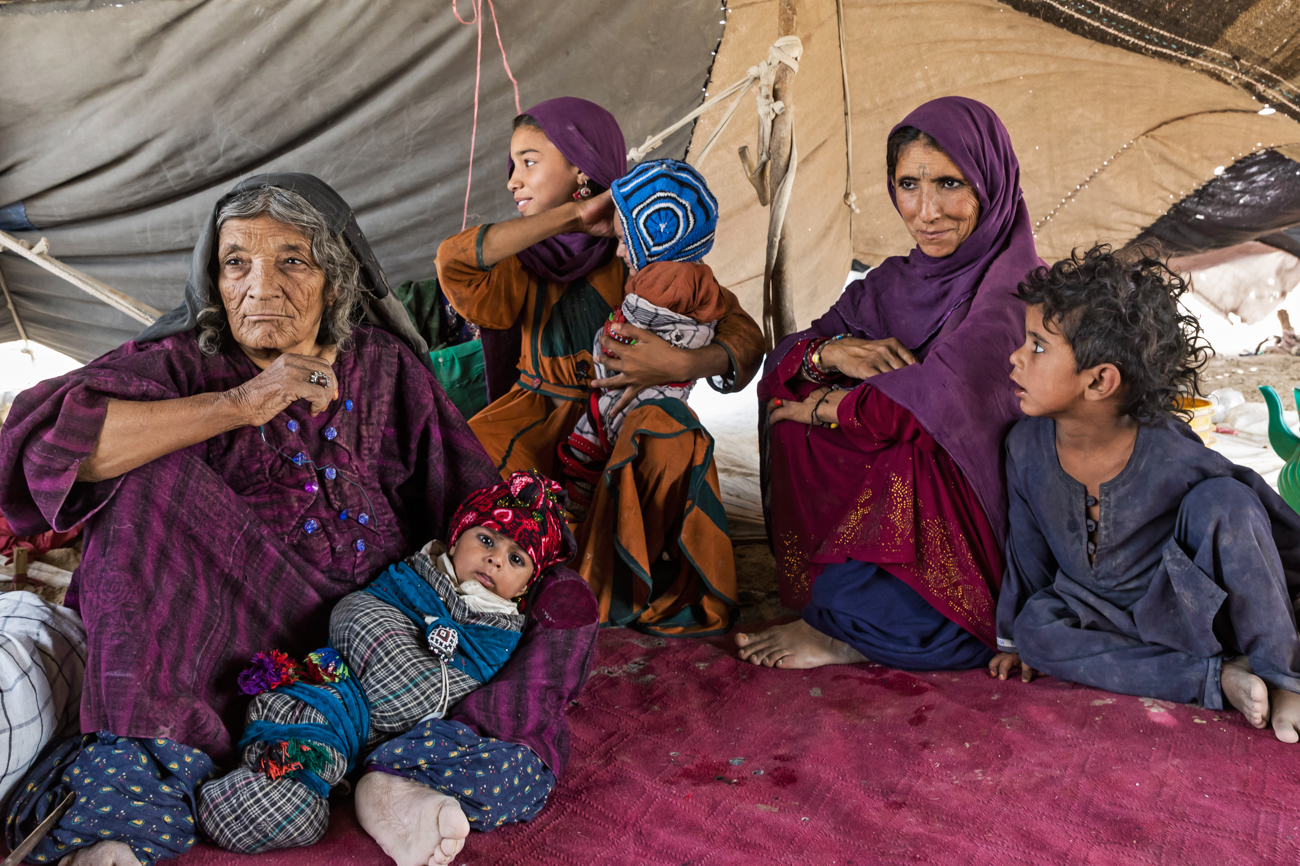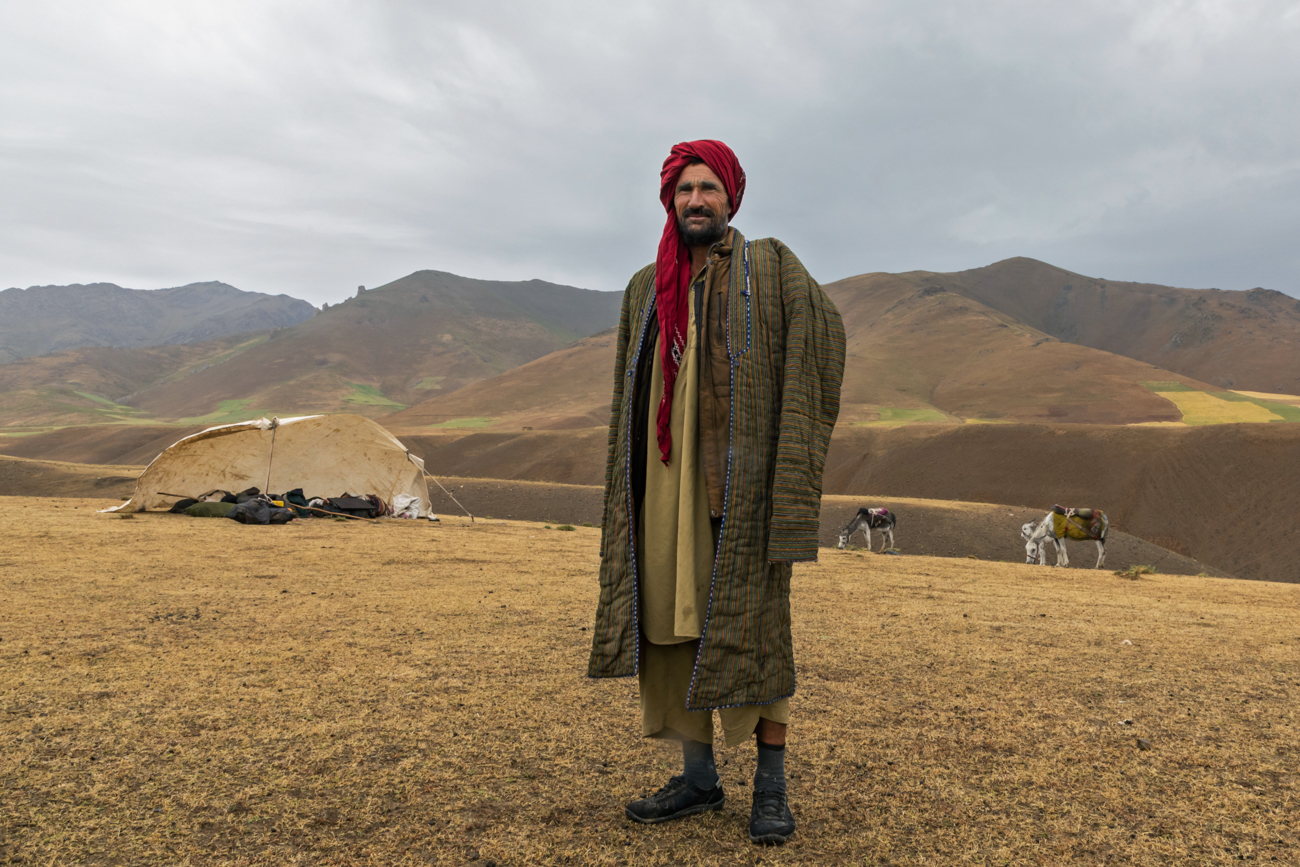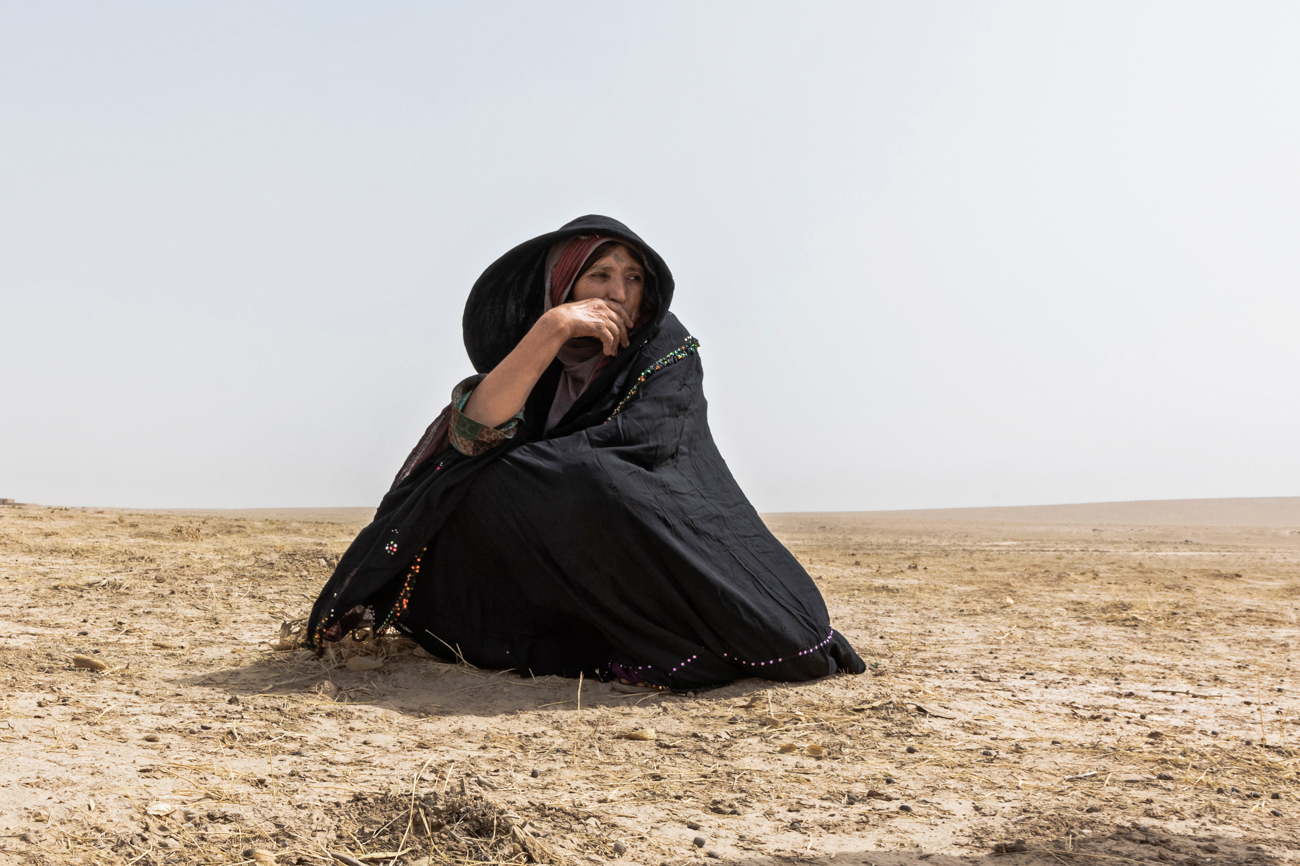Pastures of Sand
Forty years of war and four of drought on the path of the nomads
Photo by Bruno Zanzottera
Central Asia was once traversed by numerous peoples, traders and armies. Afghanistan was at the heart of this world as it welcomed the routes and footsteps of those who travelled across Asia: arguably none of those invaders ever completely left. Following on from other photojournalism reports on the topic of nomadism in the 21st century,
we set off for the quintessential nomadic land. Passing through dozens of checkpoints controlled by the new Taleban, those modern-day Sandokans with their long raven hair and kohl-painted eyes, we travelled across many regions in search of the Kuchi nomads that belong to the Pashtun ethnic group.
In recent years drought has made the pace and strategies necessary to exploit the available pasture even more unpredictable for the Kuchi herders, while also inflaming historic tensions with other nomads, the Hazara of mixed Persian, Mongolian and Turkic ethnicity. In some areas, in fact, the Kuchi are allowed only to bring their herds but not their tents. We found them after trekking for hours in the heart of the Hindu Kush in the highlands above the Amur Darya River valley, among the chimneys of the brick factories and the tarmacked roads with numerous flocks and camels. We sipped copious steaming glasses of green tea, chatting with them to understand how much the long war, drought and the new regime affected their ability to access the few available resources in a land whose beauty, contradictions and complexities are all closely intertwined.
In spite of these problems, the majority of the families we met did not intend, nor had the possibility, to change their lifestyle and so they continue to resist change, exercising their innate ability to adapt. Their sacred sense of hospitality, the collusion of some with the Taleban forces and the almost total impossibility to access the world of the women, meant that every moment spent in their tents was a rare privilege filled with questions and perplexities as we got to know one another.
(2022)
A project by Elena Dak (anthropologist) and Bruno Zanzottera
